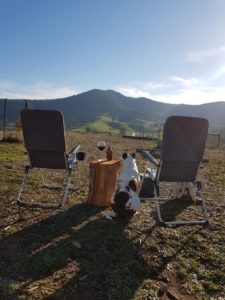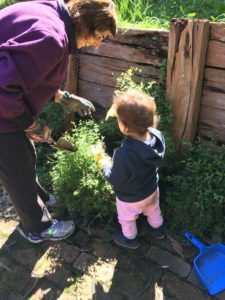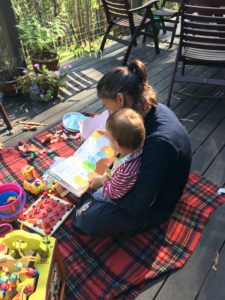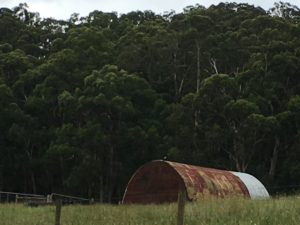It’s time to ask the question: ‘What on earth is happening with leadership.’ From global to everyday family life, it feels like we’re in a leadership crisis. Whether it’s incompetent political leaders or angry adolescents terrorising their families the desire for power without responsibility seems endemic.
In Melbourne watching our political and bureaucratic leaders duck for cover in the inquiry as to how the decisions were made that created the Melbourne Covid hotel quarantine disaster, was horrifying but unsurprising. It seems no-one made this decision…
I have dealt with the various incarnations of the Department of Health and Human Services (DHHS) for 40+ years and have observed an accelerating process of directives coming down – usually in the form of more trivial accountability processes for the front line. This is a one way process any attempt to push accountability or even a question up the line is met with, at best a response reiterating the impossibility of the request, at worst absolutely nothing. I’m sure this also happens in other government departments but DHHS is the department with which I am familiar.

If I knew that DHHS bureaucracy shouldn’t be put in charge of anything important, how come Daniel Andrews or his ministers didn’t. Sadly this investigation seems to have uncovered that none of our large state run bureaucracies were up for the job. None of them complied with the practice and procedures that they impose on the front line, and none of them expected to be called to account for their actions. When did this happen that these people we trust to run our large departments could be so unaccountable as to not even take and keep minutes of meetings. It would be nice to believe this is just a local problem but as I scan the world leaders it seems to be reasonably common. Has this always been the case and the public are now less accepting of bad decisions and thanks to social media there is certainly a lot more scrutiny?
The conclusions that I’ve come to are complex and probably could be a book rather than a blog or possibly two. Certainly in the case of DHHS I think, in the main, poor management has managed to survive because of the integrity of the front line work force. Most are attracted to this field because they want to be helpful. In this field incompetent managers can mainly trust people to do their job and from my observation certainly in health and welfare the front line workers generally manage to deliver a quality service especially if incompetent managers get out of their way.

But I would like to think about leadership in much broader terms. We all have moments when we are leaders, whether that be as parents, partners, colleagues or friends. How do we learn to lead? Embedded in the ways in which we lead are our personal ethics. Do we have a core belief that it’s important to consider the position of others who might be impacted when making a decision? Or when we make a decision that ends up being a mistake can we pick up the percentage of responsibility that is our own?
People who don’t ever consider these questions have an ethical distortion, a belief they have the right to impose and take, regardless of others. And as a consequence have developed a privileged mindset. Good leadership is a relational phenomenon – not a one way – I direct, you follow.
So lets start with the concept of privilege whether it’s male, white or whatever. When someone takes a job they think they deserve but are actually not competent to perform is a reflection of a what I would describe as a privileged mindset. I’m not talking about someone newly promoted who takes time to find their feet. But someone who steps into a position without any respect or interest for what the position entails. There is no ability to see of the impact of their leadership style on the people they are leading. There is no circularity: no feedback received, no reflection, no accountability. Donald Trump provides the most stunning current example of this style of leadership of power without responsibility.
To understand this phenomenon in leadership, I find a concept from anthropologist Gregory Bateson helpful – denial of denial. Along with many other wonderful theories he talked about two levels of denial. Most of us practice denial at some point, this is when we can feel something bubbling away but choose to deny it until it becomes impossible to do so. An example of this might be when we suspect our adolescent isn’t being entirely honest but we continue to believe them until the police take action and there is a knock on the door. In these situations we lick our wounds of shame and berate ourselves for not taking action sooner. But we are able to accept, respond and take, more or less, appropriate responsibility for our denial.
In denial of denial it will be everyone else’s fault.
In denial of denial there is an actual blindness, or a brick wall fencing in someone’s reality so that it is impossible to penetrate. Their truth is the only truth and anyone who disagrees is problematic. This creates rigidity and a dominance that potentially becomes abusive because it denies anyones right to a different point of view. This concept of denial of denial has been incredibly helpful when working with families where there has been an absence of good will. Or an unwillingness to empathise or consider another point of view as valid. It’s like an honest dishonesty. What is being denied really doesn’t exist for the denier, even when others can often very clearly see what’s being denied.
What is usually denied is a vulnerability, but this vulnerability is so defended it’s impossible to access, I’ve worked with many families with this phenomenon and often the best you can do is educate the family to build resistance to the misuse of power, accept and give up hope that this person will change.
The power for someone in a relationship with a person who has denial of denial is to refuse to accomodate the blindness even if the only way to achieve this is to walk away. Not always easy because fear is often a factor in keeping someone trapped in relationship with someone who has denial of denial. This fear may also include an awareness of the denier’s vulnerability and dependence on the compliance of the other. Tragically we see this play out when there is a murder of a partner who has managed to escape a relationship from some-one who has denial of denial.
People who have denial of denial are very controlling and hence often end up in leadership positions. They also often interview incredibly well, honest dishonesty is their absolute forte, they sell themselves incredibly well. But once in the job their leadership style demands compliance: there is no scope for difference, no scope for reflection, no scope for empathy. Ironically sometimes people with denial of denial can be seen as caring, they can be very attentive and for a time feel very nurturing until for whatever reason the recipient no longer wants the sort of care they are delivering.
Neurobiology has now given us a framework for understanding what happens to create denial of denial, validating what Gregory Bateson observed 70 or so years ago. It seems, put extremely simply, it is a form of disability created from a deficit in oxytocin (the love hormone) in our formative years. For whatever reason there has been an absence of attuned parenting. This in turn effects the neuroplasticity or stretch of the brain and the areas that allow us to think abstractly and have empathy (an abstract ability) just isn’t switched on. It’s often not malicious neglect on the parent’s part but circumstances are such that a parent is distracted and not able to respond regularly enough to the cues from their infant. Often something else is happening in the family that interrupts the ability to be attuned.
When this is the case the phenomenon is harder to understand because in the main the family is loving and caring but one child is difficult and parental guilt often feeds a process of creating a privileged mindset in this child. This child ends up getting more than their fair share of the family resources. This child then unfortunately grows into an adult who expects to be able to lead, even though they may feel powerless, and not be called to account. Simultaneously there is a profound vulnerability of unloveableness that is denied. This vulnerability may be sensed by others which unfortunately contributes to the other being forgiving of the bad behaviour of the denial of denial person. Ignoring behaviour of the over-entitled, I deserved all the resources, impossible to call to account – human. Completely closed to feedback from others. Power is conceded to the denial of denial leader heartbreakingly often.
Whether through guilt, fear, or empathy many of us inadvertently support bad leadership. Opportunities are missed to reign in leaders who practice denial of denial. It could be a parent trying to protect a child from accountability, or a manager promoting rather than performance managing an incompetent colleague, or not seriously thinking about the implications of our vote in elections. This is where I think the focus needs to be. Not on the leader who wants power without responsibility but how many acts of simple inaction have contributed to denial of denial leaders.
We all make decisions and influence others, we all have leadership moments so maybe it’s time to shift the focus to these moments and what we do with the opportunities that cross our paths.
Tragically those of us who have had enough love to be able to feel empathy tune into the panicked denial of vulnerability, that becomes denial of denial. Inadvertently supporting bad leadership, whether that be of a political leader, a partner, or the school yard bully. Those of us with empathy often try to understand and then muddle understanding with forgiveness or acceptance. In effect enabling the leader who is leading with the emotional disability of denial of denial.
This is unfortunately how incompetent leadership survives, people who want power without responsibility actually rely on the support and accomodation of others. This has been so clearly exposed in many of our political leaders and unfortunately our media co-operates by keeping the line of enquiry narrow and repetitive.
To be continued…





























